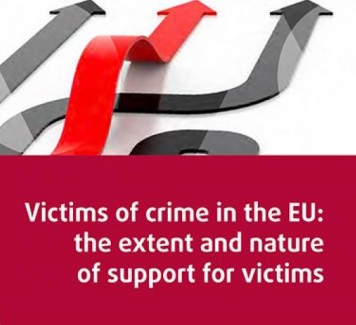Well-resourced, well-aimed victim support is vital in ensuring victims of crime have real access to justice for their plight and that their rights are respected. In the first comprehensive assessment of victim support services in the European Union, the EU Agency for Fundamental rights (FRA) noted that, despite positive developments, many Member States face considerable challenges.
“Assistance must be made available to victims before, during and after criminal proceedings – and not only legal support, but also psychological and emotional,” says FRA Director Morten Kjaerum. “In 10 months EU Member States must have transposed the EU Victims’ Directive into national law, and there is still a lot to be done.”
In order to help ensure effective support to victims throughout the EU, the FRA report makes a number of proposals, such as EU Member States need to ensure targeted support services for victims with specific needs, such as disabilites, victims of sexual violence, or irregular migrants who become victims of crime. EU Member States must also ensure that they comply with the obligations laid forth in the Victims’ Directive to train police officers and court staff, and make available additional resources needed to implement these measures.
Another important aspect concerns bureaucratic obstacles that should be removed. For example, that legal aid is available to victims who is a party to the criminal proceedings, just as it is now available to defendants. In order to encourage them to report crimes, the EU Member States should ensure that all institutions and public services (including health), which communicates with the victim immediately provide information about support services available to them.
FRA research has consistently found that underreporting is a major obstacle to ensuring victims have full access to their rights. Targeted practical support to victims of the system is a very important part of any strategy aimed at increasing confidence in the institutions and to promote reporting. The fact therefore that the Victims‘ Directive, or Directive 2012/29 / EC, lays down minimum standards on the rights, support and protection of affected individuals is a huge step forward. Articles of the Directive must be transposed into Member State nationals laes by the 16th of November 2015.
Support for victims is a topic which is closely related to other FRA activities in areas such as access to justice, discrimination and hate crimes, and in particular to the findings of the Agency‘s large scape surveys of people who are most often victimised. These activities can be found in publications such as the LGBT* report (“LGBT* research report“), discrimination and hate crime against Jews” (“The Jewish people’s nationality discrimination and hate crimes against them”) or “violence against women” (“Violence against women “).
In order to provide information about ongoing national procedures and analysis, today’s report FRA collated date from all 28 Member States. The document reveals that, despite the many challenges in many Member States, there is some positive developments. Many of them are listed in the report as promising practices. For example, in some EU Member States (Belgium, Estonia and Finland), victim support organizations are located in the same police station. In several Member States, victim support services were partly financed by funds collected through monies paid by people convicted for criminal offenses.
According to the FRA, Lithuania‘s (as well as several other EU countries) general support system for all victims of crime does not exist, as the aid is limited to specific cases (e.g. when a child becomes a victim of a crime and so on). Information about where to get help Lithuania is provided only to some victims of crime (eg. domestic violence case).
FRA‘s report on Victims of Crime in the EU: the Extent and Nature of Support for Victims (“Victims of crime in the EU. Support for victims of the extent and nature”) can be found here.
FRA’s press release




